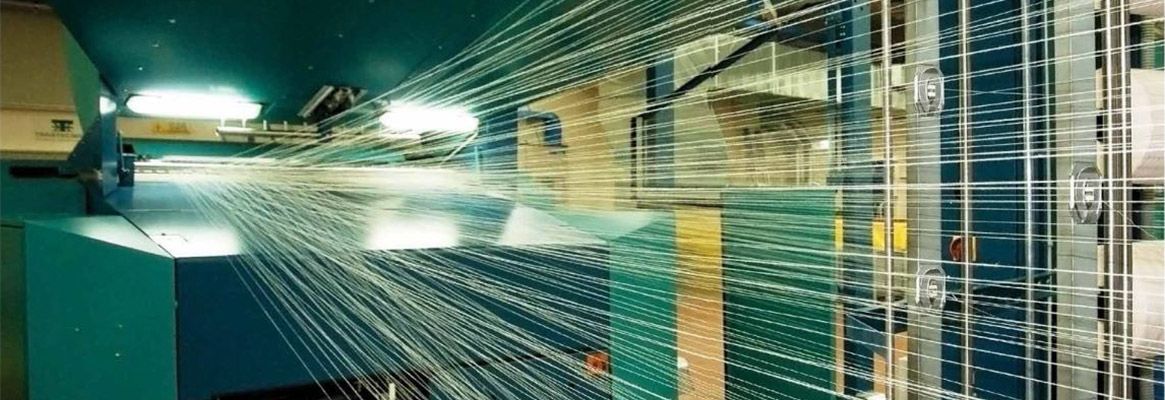
The textile machinery manufacturers produce for a purpose and with clients in mind: textile manufacturers. Fibre2Fashion decided to speak to six well-known personalities from the textiles industry and sought their opinions about the issues they face and how they feel these could be resolved.
Textile manufacturers, the obvious target audience of textile machinery manufacturers, have a lot to say – from the brands they use and prefer to the problems they face during the production process. And they have their own set of solutions and suggestions on how machinery manufacturers can make life easier for them. Most are plausible and can be implemented.
On issues that machines face
There are a number of issues that cropped up when Fibre2Fashionspoke to textile manufacturers.
Ravi S Jalan, managing director of GHCL Ltd, lists a number of issues. He says, “The machines and their spare parts from Rieter are very costly which impacts the cost of production. Also, the design of their open end machines makes tail-end preparation difficult. The yield from LMW machines is 5 per cent less as compared to Reiter and their frequency of breakdown is also very high. The KTTM ring frame machines consume more power and the working life of short aprons is also low.
“Moreover, in the open end machines from Reiter, the piecing quality is average and the package compactness is less. Schlafhorst autoconer machines, on the other hand, have high consumption of spares. Besides these, the splicing strength of Murata & Schlafhorst Autoconer is low as compared to Savio.”
The main issue that Narendra Kaushik, VP-Spinning Operations with Pratibha Syntex, faces is that of contamination. The suggestion he has in mind is to improve the quality of cotton at the ginning stage itself. Shekhar Agarwal, vice chairman of LNJ Bhilwara, says, “After-sales service needs to improve in the country for all imported machines. The technicians are not properly trained, and sometimes spare parts are not available and have to be imported.” According to Rajeev Bansal, managing director of Celestial India, the main problem he faces with Terrot knitting machines is that of the high knitting needle cost.”
Jalan also has a number of suggestions for machinery manufacturers. He believes, “Rieter is a trusted brand and has excellent post-sales service as well. They should start manufacturing all range of machines in India to bring down the cost without compromising on the quality. For their part, LMW must improve upon the quality of the components assembled in its machines. The KTTM machines should be re-designed for consumption of less power. As the apron life is shorter, they should do some R&D to improve the life of aprons.
“These apart, the open end machines from Reiter have to improve on the piecing and packaging quality through technological interventions and innovations. The number of mechanical components in Schlafhorst Autoconer has to be reduced for low spares consumption. Also, Murata & Schlafhorst autoconer machines have to incorporate new splicer with an improved splicing strength.”
Machinery brands popularly used
Rajeev Bansal, Managing Director, Celestial India
Knitting: Terrot Garmenting: Pegasus, Yamato, Juki, Jack
Ravi S Jalan, Managing Director, GHCL Ltd
Spinning: Rieter, LMW, KTTM, Murata, Savio, Schflorst, Suessen
Shekhar Agarwal, Vice Chairman, LNJ Bhilwara
Spinning: LMW, Rieter, Murata, Schlafhorst, Uster
Weaving: Dornier
Knitting: Fukuhara, Mayer & Cie, Karl Mayer Garmenting: Pegasus, Brother, Juki
Narendra Kaushik, VP – Spinning Operations, Pratibha Syntex
Spinning: Blow-room: Casrol, LMW, Truetzschler; Cards: Casrol, LMW, Trutzschler; Draw-frame: Toyoda, LMW, Trutzschler; Combers: Toyoda; Simplex: Texmaco, LMW; Ringframe: Toyoda, KTTM, LMW; Autoconers: Murata, Savio; Conditioning plant: Xorella, Sieger; Air-jet: Murata; Open-end: Saurer SE-10, Saurer SE-12
Rajesh Parikh, Managing Partner, Parikh Patel & Co
Ginning: Bajaj Industries, India – double roller gins and lint openers; Samuel Jackson, USA – steam conditioners and bailing press imported by Bajaj Industries; Truetzschler, Germany contamination cleaning system with ultrasonic cleaning
Mukund Choudhary, Managing Director, Spentex Industries
Spinning: Reiter, Zinser, Murata, Marzoli, Schlafhorst, LMW.
On training people
People are the greatest asset of any organisation, asserts Jalan. He believes proper training is must for efficient use of technology to remain competitive in the market place. “We have a high level training module to ensure the best use of technology for every machine. If we talk about any specific training experience, we would like to add that: (i) in the Reiter open end machines, they need to either improve the composition of the machines in a manner that the tail end preparation becomes easier or they should train their customers’ technicians properly; and (ii) in case of LMW machines, they need to make more user-friendly techniques for comber settings to improve the overall experience of technicians.”
Mukund Choudhary, managing director of Spentex Industries, says about the process followed in his organisation, “Due to state-of-the-art technology and new generation of machines, the operational problems are self-explanatory. Newly-joined trainees are being trained to operate the machines. The total training course is of four months.”
There are three areas where Kaushik sees challenges: the availability of manpower itself, the regular attrition of workers, and that of changing the mindset of workers. Agarwal says, “Spinning is not an issue, but there are issues relating to knitting and dyeing/ finishing.” Bansal feels training people in the machinery sector is not a tall order.
On beyond after-sales service
Jalan has specific requests for two machinery manufacturers, “LMW’s after-sales service needs to be improved during the warranty period. For Rieter, on the other hand, the response time for fixing an issue is more which they can improve by increasing their workforce of skilled engineers.”
Choudhary looks out for two things from machinery manufacturers. He feels they should provide timely service support, and help in upgrading technical developments so as to keep the plant ahead.
Kaushik feels that spares of OEM suppliers is very costly, and in case of any problem, the response time is very high. Moreover, sometimes the delivery of parts takes quite long.He also feels the need to have updates on the new developments in technology. Bansal thinks availability of mechanics and spares need to be kept in mind.
The brands they prefer
Rajeev Bansal, Managing Director, Celestial India
Knitting: Fukuhara,
Garmenting: Juki, Pegasus
Ravi S Jalan, Managing Director, GHCL Ltd
Spinning: Rieter for spinning preparatory and ring frames;
Murata for coarse and medium counts; Savio for finer count
Shekhar Agarwal, Vice Chairman, LNJ Bhilwara
Spinning: Rieter
Weaving: Dornier
Knitting: TFO, Terrot, Mayer, Fukuhara
Narendra Kaushik, VP – Spinning Operations, Pratibha Syntex
Spinning: Machine Performance: Trutzschler; Economical: LMW
On the need for innovation
More innovations are obviously needed. Choudhary has three areas where he looks forward to innovations and improvements: auto doffing on ring frames, roving bobbin transportation system, and link coners. Kaushik, on the other hand, wants to see air-jet spinning technology being improved. For Agarwal, the keyword is automation.
[“source=fibre2fashion”]




